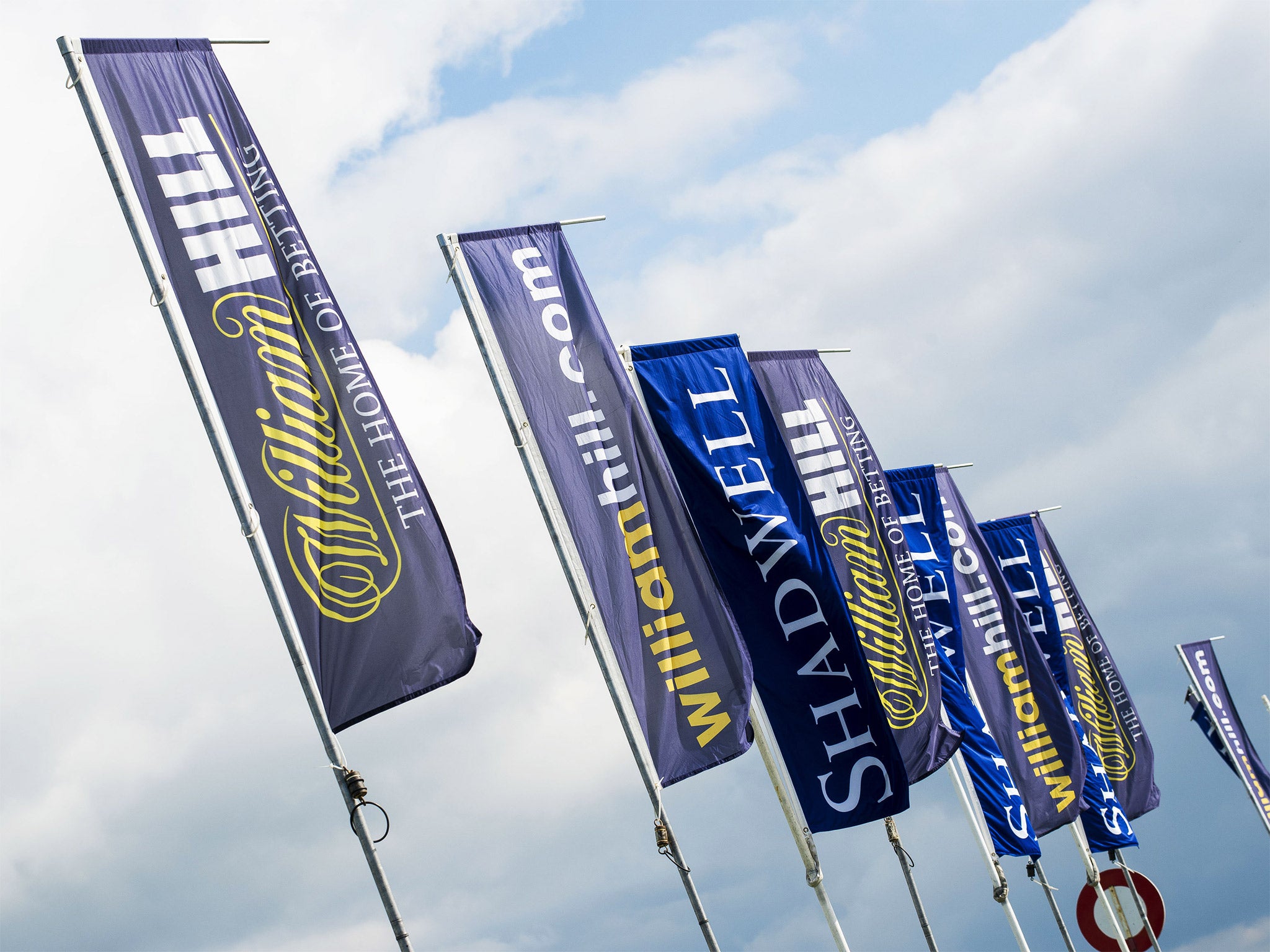William Hill: Betting firm complains 'panic button' allowing gamblers to take break is hurting profits
'We expect operators to put social responsibility at the heart of their business'

Your support helps us to tell the story
From reproductive rights to climate change to Big Tech, The Independent is on the ground when the story is developing. Whether it's investigating the financials of Elon Musk's pro-Trump PAC or producing our latest documentary, 'The A Word', which shines a light on the American women fighting for reproductive rights, we know how important it is to parse out the facts from the messaging.
At such a critical moment in US history, we need reporters on the ground. Your donation allows us to keep sending journalists to speak to both sides of the story.
The Independent is trusted by Americans across the entire political spectrum. And unlike many other quality news outlets, we choose not to lock Americans out of our reporting and analysis with paywalls. We believe quality journalism should be available to everyone, paid for by those who can afford it.
Your support makes all the difference.A “panic button” making it easier for problem gamblers to take a break from online betting by locking their accounts has damaged the profits of William Hill, the firm has announced.
As part of a new feature introduced to the website last year, punters can choose to lock themselves out of their accounts for 24 hours, a week, a month or up to six weeks with just the click of a button.
The option was introduced by the UK Gambling Commission last November as part of a raft of measures designed to improve the industry’s social responsibility.
William Hill’s chief executive James Henderson said the number opting to take a break had risen by 50 per cent since the turn of the year, with about 3,000 accounts now being locked every week.
The surge in gamblers blocking accounts has cost the firm £2m so far and, if it carries on, could be a factor in profits being £20m to £25m lower than expected this year.
“It’s a small amount, but if it continues on the trends we are seeing at the moment, the cumulative impact is why we’ve guided the market [about expectations] today,” he said.
William Hill’s online business, with 2.7 million users, made £126.5m last year.
Charles Huggins, investment analyst at Hargreaves Lansdown, said 2016 was supposed to have been the year when William Hill’s online business “regained its mojo”.
“The challenge for William Hill is to reduce reliance on problem gamblers and recruit more ‘recreational’ clients. These are punters who don’t take it seriously enough to know what they are playing at, and can be relied upon to bet money at poor odds, in return for a bit of a thrill,” he said.
The new rules were introduced in an amendment to the 2005 Gambling Act in November. The time-out is the first time a short-term suspension has been offered. Total self-exclusion schemes have been a long-standing feature of the industry, with operators striking deals with customers to refuse to serve them in betting shops for a minimum of six months.
“We expect operators to put social responsibility at the heart of their business,” Gambling Commission consumer policy programme director Paul Hope said. “Recent changes we’ve made to our regulations have provided consumers with more effective tools to manage their gambling. It is up to consumers to decide how to use them.”
The regulator is planning to introduce a nationwide scheme letting customers apply for a total self-exclusion from all bookies simultaneously.
Join our commenting forum
Join thought-provoking conversations, follow other Independent readers and see their replies
Comments